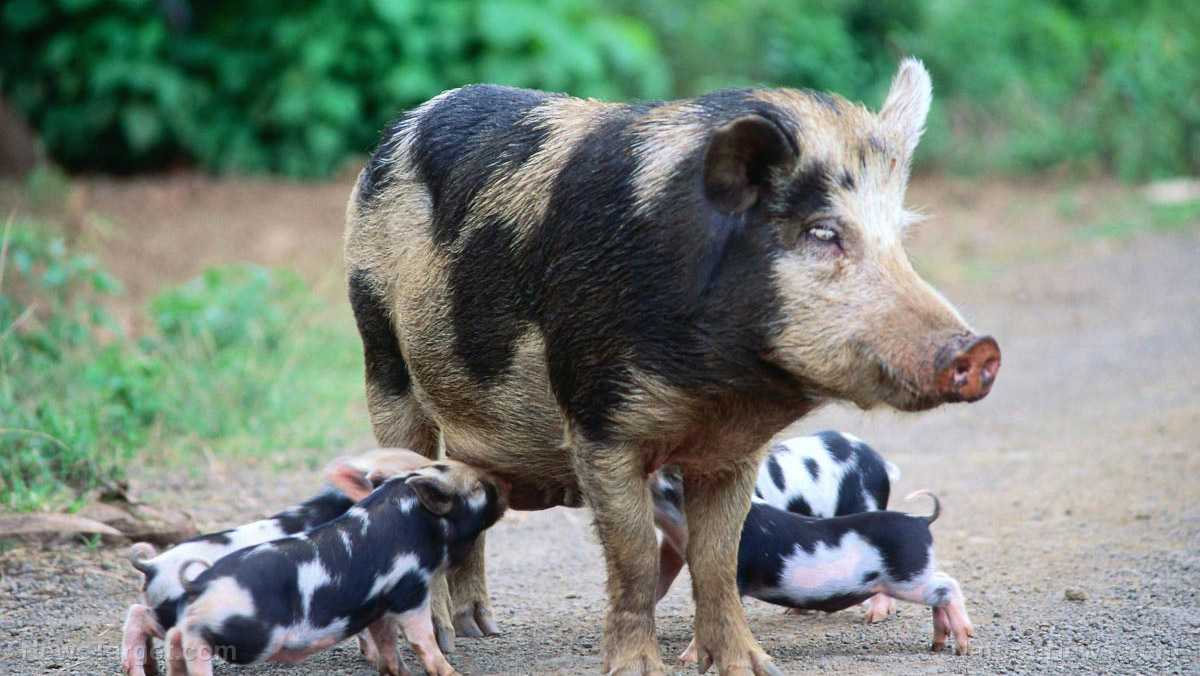Duke suspends its plans for a new gas power plant and will focus on generating energy from pig waste
05/31/2018 / By Edsel Cook

Duke University has indefinitely suspended its plan for a natural gas power plant on its campus. According to an article in the Energy News Network, the school will be getting its energy needs from methane biogas made from hog waste.
The decision is the culmination of a two-year struggle between the similarly-named but unrelated Duke Energy and an alliance of students and environmentalists. The energy utility hoped to own and run the new plant, which would start off burning fossil fuels before switching to biogas.
The biogas industry in eastern North Carolina could benefit from the university’s switch to renewable natural gas. A swine biogas facility may also reduce air pollution and odors from the region’s numerous hog operations.
Still, environmental groups urge Duke to bring in people from communities that are affected by hog operations during future discussions. They also want clarification on the meaning of “indefinitely.” (Related: Cool multi-use invention: Street lamp powered by dog poop has proven to be a successful green energy and waste management combo in the U.K.)
The suspended combined-heat-and-power plant would have been the newest addition to Duke Energy’s fleet. All the steam would have gone to the university, but the electricity would be sold to the utility’s customers.
Combined-heat-and-power designs are much more efficient than traditional equivalents. Usually built as upgrades of existing facilities, they provide emergency power for hospitals and research labs operated by college campuses.
Duke University went from fossil fuel to swine biogas
In May 2016, Duke Energy announced it would build a number of new power plants on school campuses. It would charge ratepayers for the construction.
The utility’s plan for a power plant in Duke’s campus quickly went south. Critics lambasted Duke Energy for making the announcement right after students went home for the summer.
Duke tried to defend the decision by releasing calculations that claimed the new fossil fuel plant would reduce its air pollution. No one believed the statements and the school eventually changed them.
Furthermore, North Carolina ratepayers were unhappy at footing the bill. So Duke amended its position, promising to proceed with the new power plant if it could get five years worth of swine biogas as fuel.
The university needed ways to reduce the 10 billion gallons of swine produced in North Carolina. Using swine biofuel would decrease fossil fuel consumption and lower methane emissions. It would also reduce the content and stench of the open-air pits that hold hog waste.
Several hog operations are already burning methane gas. But a directed biogas facility would be able to benefit hundreds of farms in eastern North Carolina.
Tensions towards suspended fossil fuel plant and hog industry remain high
Duke officials explained they are making headway on getting enough renewable natural gas for their existing power plants. They insist the biogas issue is unrelated to the suspended power plant. The university also promised to consider its energy needs for the future before foisting a $50 million bill on ratepayers.
Duke officials’ current stance might be linked to a strong campaign mounted by anti-power plant groups. The campaign culminated with several famous alumni sending a signed letter to the university president in March 2018.
Environmentalists are not resting on their laurels following this victory. They want Duke to tread lightly around the matter of biogas derived from hog operations.
Many communities have fought the region’s powerful hog industry for decades. These embittered locals will not trust any proposal that appears to benefit their enemies.
In addition, biogas will not do anything for the water pollution from the waste pits. A different solution will be required to clean up that mess.
Find out how we can get our energy needs from hog waste and other unlikely sources at Power.news.
Sources include:
Sites.Duke.edu [PDF]
Tagged Under: biofuel production, biofuels, biogas, biomethane, combined heat and power plant, environment, fossil fuel, hog operations, Methane emissions, methane gas, North Carolina, power, renewable energy, swine biogas, university, university campus


















